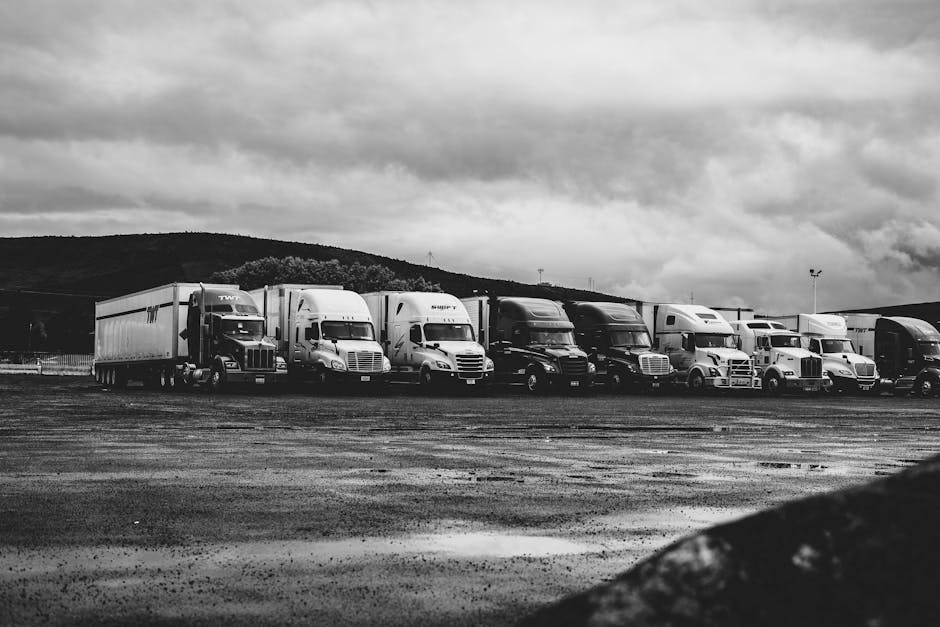Fleet Insurance for 18-Wheelers: Comprehensive Coverage Options
Managing a fleet of 18-wheelers is no small feat, and one of the most critical aspects of running such an operation is ensuring proper insurance coverage. Fleet insurance for 18-wheelers goes beyond protecting individual vehicles; it safeguards businesses from the significant risks associated with operating large commercial trucks. From accidents and cargo damage to liability claims, these policies are designed to address a wide range of potential challenges.

With the trucking industry forming a backbone of the economy, understanding comprehensive coverage options can help owners and operators secure their assets and maintain business continuity.
Understanding Fleet Insurance for 18-Wheelers
Fleet insurance refers to policies that cover multiple vehicles under a single plan. For trucking businesses operating 18-wheelers, this type of insurance simplifies management and often offers cost benefits compared to insuring vehicles individually. The scope of coverage typically includes liability protection, collision coverage, and specialized options such as cargo insurance.
Liability insurance is mandatory in most jurisdictions and covers damages or injuries caused by the truck driver to third parties. Collision insurance, on the other hand, takes care of repairs or replacements if a vehicle in the fleet is involved in an accident. Many insurers also offer tailored options like uninsured motorist coverage, which protects against damages caused by drivers without adequate insurance.
Fleet policies can be customized to meet specific needs. Some companies may require environmental liability coverage if their trucks transport hazardous materials. Others might prioritize downtime coverage to minimize financial losses while a vehicle is being repaired.
Benefits of Fleet Insurance
Opting for fleet insurance comes with several advantages that make it an attractive choice for businesses managing 18-wheelers. First and foremost, it consolidates all vehicle policies into one manageable package, streamlining administrative tasks and reducing paperwork.
Insurers often provide discounts for fleet policies, especially for businesses with a strong safety record or advanced driver training programs. These discounts can result in significant cost savings over time.
- Simplified policy management
- Potential cost savings through bulk discounts
- Comprehensive coverage options tailored to specific needs
- Flexibility to add or remove vehicles from the policy as the fleet changes
Another crucial benefit is improved risk management. By working closely with insurers, fleet managers can access resources such as safety training programs, telematics systems, and regular vehicle inspections, all designed to reduce accidents and enhance efficiency.
Key Coverage Options for 18-Wheelers
A typical fleet insurance policy for 18-wheelers includes several key components that ensure comprehensive protection. Here’s a closer look at some essential coverage options:
Cargo Insurance: This protects the goods being transported in case of theft, damage, or loss during transit. It’s especially vital for fleets carrying high-value or perishable items.
General Liability: Beyond vehicle-related incidents, this covers broader risks such as property damage or bodily injury occurring on business premises or due to business operations.
Physical Damage Coverage: This includes both collision and comprehensive insurance, covering damages caused by accidents, vandalism, weather events, or other non-collision incidents.
Bodily Injury Liability: Mandatory in most states, this pays for medical expenses and legal costs if someone is injured in an accident involving a fleet vehicle.
Factors Affecting Fleet Insurance Premiums
The cost of fleet insurance varies widely based on several factors. Understanding these variables can help fleet owners make informed decisions when selecting a policy:
| Factor | Impact on Premium |
|---|---|
| Fleet Size | Larger fleets may qualify for bulk discounts but could face higher premiums due to increased risk exposure. |
| Driver Records | A clean driving history across the fleet reduces premiums significantly. |
| Cargo Type | Transporting hazardous or high-value goods often leads to higher premiums. |
| Vehicle Age and Condition | Newer vehicles with advanced safety features generally cost less to insure. |
| Location | Premiums may be higher in areas with elevated accident rates or theft risks. |
Tips for Choosing the Right Policy
Selecting the best fleet insurance policy requires careful consideration of your business needs and risk profile. Start by assessing your fleet's operational scope, what types of goods are transported? Are long-haul trips common?
Compare quotes from multiple insurers while paying attention to coverage details rather than just price points. Look for companies experienced in insuring commercial trucking fleets as they are more likely to offer tailored solutions. Reviews from other businesses in the trucking industry can also provide valuable insights into an insurer's reliability and claims process.
The Role of Technology in Managing Fleet Insurance Costs
Advanced technology has become a game-changer in managing fleet insurance costs effectively. Telematics systems track driver behavior and vehicle performance in real time, providing data that insurers use to assess risk more accurately. Features like GPS tracking, speed monitoring, and automated braking systems contribute significantly to safer operations and lower premiums over time.
Electronic logging devices (ELDs) mandated by federal regulations ensure compliance with hours-of-service rules while minimizing fatigue-related accidents. These technologies not only enhance safety but also strengthen a company's position when negotiating with insurers for better rates.
Avoiding Common Pitfalls When Insuring Fleets
Mistakes in choosing or managing fleet insurance can lead to unnecessary expenses or inadequate protection during critical incidents. One common pitfall is underinsuring the fleet, opting for minimal coverage might save money upfront but could result in substantial financial losses if major accidents occur.
Failing to update policies as fleets grow or operational scopes change is another oversight that can leave businesses vulnerable. Regular reviews with your insurer ensure that your policy remains aligned with your needs.
The right fleet insurance policy not only protects your 18-wheelers but also secures your business against unforeseen challenges. By understanding available coverage options and leveraging technology to improve safety standards, fleet owners can achieve comprehensive protection while optimizing costs. Whether you’re insuring a small fleet or managing dozens of trucks across multiple states, choosing the right policy requires diligence and thoughtful planning and it’s an investment well worth making for long-term success.
Trucking Info, Insureon.com, FMCSA.gov.